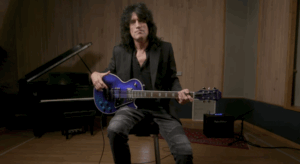John Fogerty Thinks CCR Fell Apart Because Other Members Are Jealous

John Fogerty with Fogerty's Factory, his family band - John Fogerty / YouTube
Creedence Clearwater Revival was one of the most defining bands of the late ’60s and early ’70s. With hit after hit, they quickly carved out a place in rock history. From “Proud Mary” to “Bad Moon Rising,” CCR’s sound became synonymous with Americana rock.
But success didn’t come without its fractures. Tensions simmered beneath the surface, especially between frontman John Fogerty and the rest of the group. Despite their commercial momentum, the band ultimately couldn’t survive the personal turmoil that developed.
Decades later, John Fogerty opened up about what really caused the band’s collapse. In a candid interview, he reflected on CCR’s internal dynamics and the unexpected role that jealousy may have played in tearing them apart.
View this post on Instagram
Fogerty Reflects on the Breakup
In an interview with Dan Rather, Fogerty was asked the question fans have pondered for decades—what led to the band’s breakup? With a slight laugh, he admitted that it took him years to even begin to understand. At the time, everything felt like it was going right.
From writing songs to watching them climb the charts, Fogerty said the band seemed to be living the dream. Recording sessions turned into radio hits, which led to sold-out shows and financial stability. On the surface, there was no reason to expect trouble.
Yet something was brewing beneath that success. Fogerty admitted that he didn’t recognize the emotional undercurrents until much later. It wasn’t until his wife Julie offered her perspective—saying the others were simply jealous—that it finally clicked for him.
View this post on Instagram
Signs of Jealousy Within the Band
Looking back, Fogerty began to see the signs were always there. Even in 1969, when CCR was on fire with multiple hits, he sensed unease from his bandmates. As the public face of the band, he naturally received more attention, something that may have stung the others.
He recalled a telling memory from an early tour: while walking through an airport, a child excitedly approached him for an autograph. Though the moment was innocent, the reaction from his bandmates was anything but. He heard the grumbles and mumbled complaints that followed him afterward.
At the time, he didn’t think much of it. He brushed it off as harmless or imagined. But with hindsight, Fogerty now believes it was one of the early indicators of the growing resentment within the band—a resentment that would eventually erode their unity.
View this post on Instagram
A Legacy Overshadowed by Division
Despite their creative achievements, Creedence Clearwater Revival’s story is often remembered as one of unfulfilled potential. The band dissolved in 1972, just a few years after their meteoric rise. While their music lives on, their partnership did not.
Fogerty’s recent reflections shed new light on the reasons behind the split. If jealousy really was at the heart of it, it adds a human dimension to a band often mythologized for its sound rather than its struggles. It’s a reminder that egos, insecurities, and dynamics offstage can be just as impactful as talent.
In the end, Fogerty’s words offer clarity, but also a tinge of sadness. CCR had all the pieces for long-term success, but internal fractures proved too deep to repair. And for fans, that makes their short run all the more bittersweet.
View this post on Instagram











